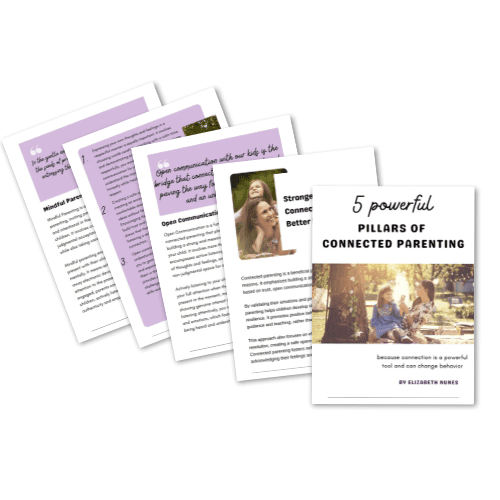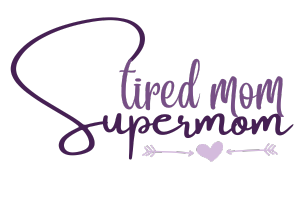3 Powerful Steps To Diffuse a Toddler Tantrum
How to handle toddler misbehavior using positive and gentle parenting.
Handling severe temper tantrums in 2-year(+) olds in public is not easy, especially when it feels like everyone around you is judging you.
Toddlers screaming in public and having epic meltdowns is something every parent deals with.
It can be very challenging when children do not have verbal communication skills to communicate their struggles properly.
While that is not the case, most people understand the struggles of parenting and are most likely sympathizing with your situation.
It is super urgent we don’t allow the uncomfortable feeling of being stared at to influence the way you handle a teaching moment.
I am not a doctor with a psychology degree, but I am a mother of 2 strong-willed boys and have had my fair share of tantrums in public.
My husband and I always use a positive parenting approach to dealing with situations, and I have been approached post-tantrum and complimented on keeping my cool after a complex meltdown.
This post may contain affiliate links. Full privacy policy and disclosure here.
*This information is for educational purposes only, if you need medical attention, please consult a physician.
Why Do Toddlers Scream
Screaming in toddlers and preschoolers is common.
It is difficult for kids of those ages to form words and thoughts that reflect their feelings.
If the child is not speaking in full sentences and has a smaller library of words to pull from, any frustrations they have will likely come out in the form of a scream, or a loud cry.
Language development directly affects social-emotional development. Toddlers and preschoolers are still learning so much information daily.
Trying to put words together, figuring out what their feelings mean all the while learning to use a potty, and trying to follow all the rules that parents set is very overwhelming for little ones.
While it is fantastic to focus on all the things that little ones need to have, I find it beneficial to focus solely on the most important skills first, and that is language development.
Helping your child figure out speech will directly affect how they deal with their emotions, which leads to a more peaceful home with fewer tantrums overall.
Toddlers scream for the sole purpose of grabbing your attention. Even though they may have your full attention already, it may not be the attention they were hoping for.
As a parent, how are you supposed to know what they need if they don’t even know what they need?
It can be very frustrating.
The good news is, there are effective ways to deal with toddler tantrums in a gentle parenting way, even in public.
What To Do When Your Child Has A Meltdown In Public
A Tantrum At The Grocery Store – Story
Sometimes a toddler meltdown can happen at the drop of a hat.
No warning, just full-on screaming because you did or said something that was displeasing to the little one.
I want to take you back to a moment I had in a grocery store with my 3-year-old.
My older child was in school, so this was a perfect teaching moment for my preschooler.
I had to grab some groceries and, of course, thought the process would be easier with one child than two and chose to go during the school day.
While calmly shopping for over 30 minutes, suddenly, my 3-year-old refuses to go any further.
He dropped to the ground and laid down on his back in the middle of an aisle.
I calmly explained to him that we need to continue our shopping trip, and I just kept on going down the isles.
Typically, this would prompt him to continue walking with me, and we could all move on with our day.
Not this time.
I went back up to him and explained that if he was going to continue lying on the dirty floor in the middle of the grocery store, we would have to go back to the car and leave all the groceries behind.
All the groceries, even his favourite snacks.
Unfortunately, this prompted a screaming fit.
I calmly picked him up and left the cart (reluctantly) in the grocery store and walked back to the car.
While getting all buckled up as I was ready to go back to the house, he immediately asked me why the groceries were not in the car with us.
After calmly explaining why I had to leave the groceries behind, he said he would like to go back for the groceries.
We were able to complete our grocery shop with no further meltdowns.
Related: 6 Simple Positive Parenting Techniques (That Will Make You A Better Parent)
Steps To Handle A Meltdown
The most important thing to do when handling a meltdown is to remain calm and use a firm but gentle voice and keep in mind that frustration and outbursts are common during toddlerhood and preschool years and those blood-curdling screams are not going to last forever.
Chances are, the first time you put this plan into action, they aren’t going to calm down quickly, however, after a few times of going through the same process, the whole thing is going to get easier.
- During a meltdown, your reaction to the behavior plays a huge role in how the whole thing is going to go down.
- You’ll want to get down to their level calmly
- Explain calmly what your frustrations with the situation are. For example, “I know you’re frustrated, but I can’t help you because I don’t understand you when you scream. Screaming is hurting everyone’s ears. If you cannot calm down, I will have to take you outside for a few minutes.”
- You’ll only need to say that once and only once.
- If a second warning is required, you can give a count such as “I need you to calm down by the count of 3, or we will need to go outside” Remember to use a loving but firm voice.
This is a teaching moment. Your child is having a tough time providing the appropriate response at this moment, and they need a nudge in the right direction on how to handle these situations appropriately.
You are sending a message that the behavior is disturbing to others, so to be respectful, we need to go somewhere more appropriate so we can calm down.
There is nothing wrong with needing a few minutes to calm down; even as adults, sometimes we need a moment to get our heads in the game.
After the child has calmed down, you can go back to the situation you left and continue your day.
Practical Tips For Stopping A Run Away Toddler
- Set Clear Expectations
- Be Consistent With Requirements
- Follow Through Consequences
- Praise A Job Well Done
Something you should do in any situation is to state all of your rules in a simple, easy to understand way before you leave the house or get into the stroller.
Make it clear that if rules are not followed, the consequence will be going home. The thing is, you must make sure to be able to follow through on that consequence in order for it to be effective.
This is not a good consequence if you are paying $300 to get into the zoo (exaggeration, sorry, our Zoo is crazy expensive!) and you threaten to leave because if the running away sequence starts 15 minutes into your trip, you’re going to lose a lot of cash if you turn around and go back home.
A good turn of phrase for explaining the discipline to your kids is” Safety First, Fun Second”.
If the listening/safety doesn’t happen, the fun thing you had planned doesn’t happen.
This isn’t punishment, it is a way to get kids to understand what is safe and what is not. It should not be used a threat, but rather an explanation.
A good way to see if your child understood the statement, ask a few questions to confirm they had their listening ears on.
Alternative Ways To Help Your Child Not Run Away
The Backpack
The first thing you can try is to get a backpack with a tether. It is a safety leash made for children that usually comes with an adorable backpack that kids love to wear.
This method keeps your child safe by your side all while giving them the freedom to walk on their own.
Personally not my favourite method, mostly because it did not work on my kids, but I have seen this very successful for MANY of my friends and family members and thus it is my number one suggestion for your runaway child.
Make It Into A Game
Sometimes the best thing to do is make a game of the situation.
Letting the imagination out with a simple game such as pretending the running child is a vehicle and giving commands such as “red” (means stop), “Yellow” (Means Slow Down), and “Green” (Means Go).
This kind of method is called ” Learning Through Play” and I am a huge advocate for this. I find children learn really well through hands-on learning situations.
Try The “Hold The Stroller” Approach
Sometimes the best thing to do is get your child to hold onto the stroller while you push it around. This gives them the independence of walking as well as the satisfaction of helping you out.
This is a win-win situation and could last a long while until your child is exhausted from walking and needs to get back into the stroller.
If your child starts out walking nicely alongside the stroller but then starts to run away when they see shiny exciting objects in the distance, you will have to put the child back into the stroller for being unsafe.
Importance Of Staying Calm During Heated Situations
It is essential to stay calm during stressful parenting moments.
You’re teaching your child how to handle situations, and if you are quick to anger, you are teaching your child that kind of behavior is ok.
Make sure you take a breather when times are hard and remind yourself that these tough moments do not last forever and that you’re doing a great job.
Suggested Reading For Parents:
Suggested Reading For Kids
Calm-Down Time (Toddler Tools)
Tools to help your toddler understand how to calm down after a tantrum.
The Tantrum Monster: (Children’s books about Anger) (Emotions & Feelings)
It helps children deal with overwhelming feelings.

Get Your Free Download
Take your parenting journey to the next level with our comprehensive ebook on Connected Parenting.
Download this ebook now and embark on a transformative parenting experience that will strengthen your bond with your child and bring joy and fulfillment to your family life.






Great tips here, and something every parent has been through a few times, the key is staying calm x
These are great tips. Toddler tantrums are not so easy to handle and so stressing most especially if they are doing it in a public area. And yes, I agree with you that we need to be firm, be patient and be calm during the time of teaching them.
love your tips ! is important to say calm at the end of the day they are just kids , and kids look up to us to just later imitate our reactions
I have a toddler and i must appreciate the fact that he’s been amazing in public so far. I hope he stays this way.